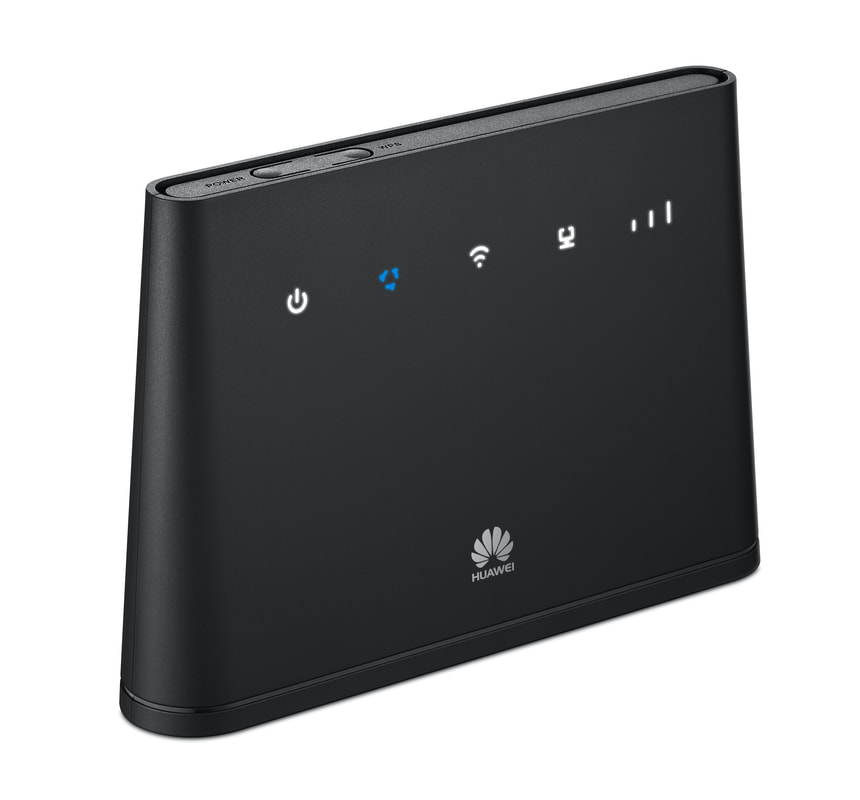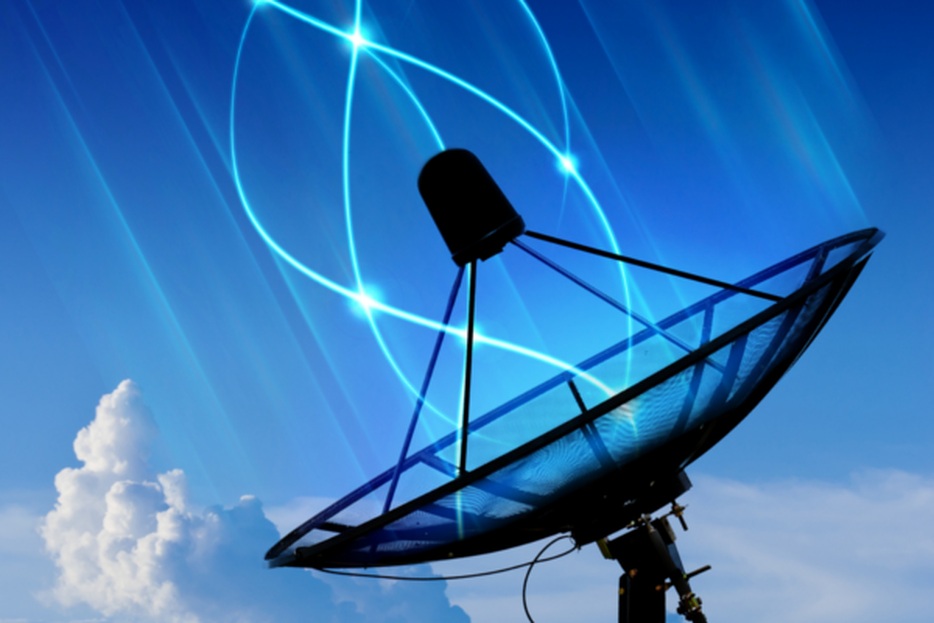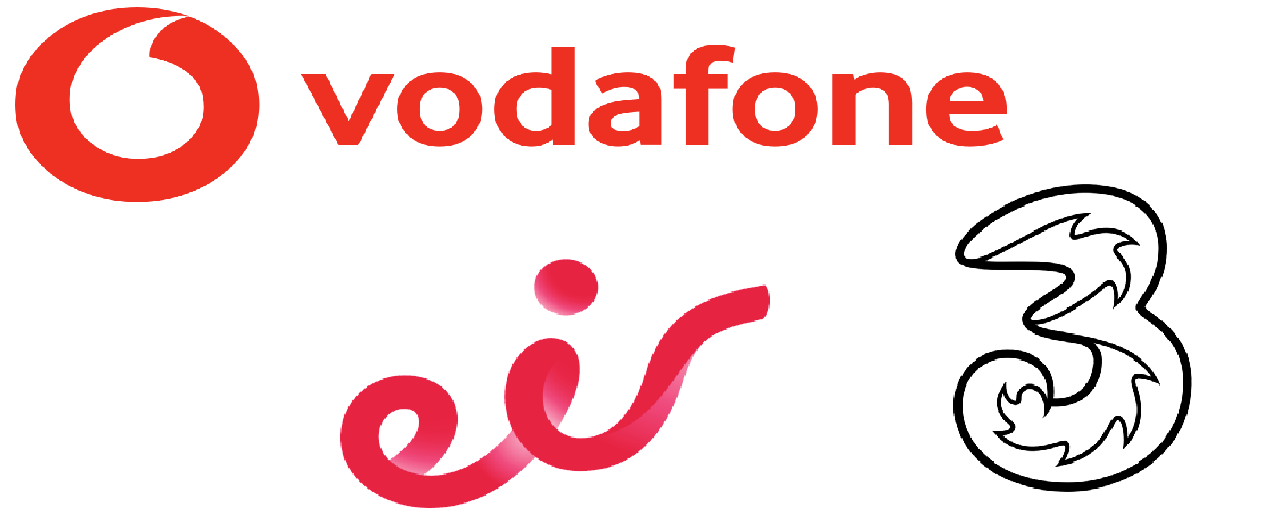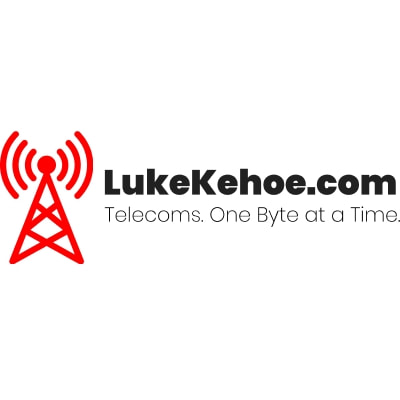Investigating the alternatives to Fibre Broadband in Ireland.
In a nutshell, fibre is the best way to deliver broadband in terms of speed, reliability and future proofness. However, fibre is also one of the most time consuming and resource demanding methods of providing broadband.
Published 21/09/18
If you are someone who enjoys access to reliable and fast broadband, lucky you. On the contrary, if you are one of the millions in Ireland who struggle to access the Internet day after day, in a world that is increasingly transitioning to online activities, there appears to be no improvement in sight. The good thing is the fact that there are always many solutions to a problem in the technology and telecommunications industries. Those alternative solutions vary from location to location, and while they may mitigate an issue, they almost never completely solve it. Think of it as adding a band-aid to a throbbing finger.
The best solution would be to provide Fibre-To-The-Home (FFTH) broadband to every building on this island, from apartments in Sandyford, houses overlooking beaches in Wexford and as far remote as homes sitting on the northern-most peninsula of this island. The National Broadband Plan aims to do exactly this, but you would need to be hiding under a rock to not understand the many hurdles and setbacks which the plan has endured through its turbulent planning stages. As of publishment, the National Broadband Plan has yet to commence, leaving over 500,000 Irish premises longing for a way to access the Internet.
The issue of providing FTTH broadband to every single building- on an island that is home to one of the most remote and dispersed populations in Europe is one of economics. It is simply not feasible for a private company to undertake such a task as it would cost huge amounts of money, both upfront and for operational expenses in the future. Then, there is always the narrative that we don't need a gigabit broadband connection in 2018. Personally, I think those who utter such words have no sense of foresight for what is rapidly approaching us, the reality that top quality access to the `Internet is a necessity for education, work and leisure.
In a few years time, we will look back on the expensive networks which we have developed and believe me, we will be utterly ashamed if we decide to ignore fibre. People need to get the following into their mind, and sooner rather than later: history has told us that pursuing purely wireless broadband methods on a national scale is a concoction for disaster, just look at the failed National Broadband Scheme in Ireland a few years back. We are bound by the limits of physics, limits that are significantly lesser with fibre broadband. Yes, it is a massive undertaking to connect a nation with fibre broadband, but it would be a catastrophic mistake if we decide to choose the wireless option, an option that will fall obsolete faster than we can hit download.
SIRO and eir are in the process of rolling out FFTH broadband to over 300,000 premises in Ireland, and that is a massive breakthrough from just a few years ago. In fact, SIRO has taken small villages such as Skibbereen out of the stone age in terms of connectivity and flying into the twenty-first century. But, there are obviously many out there that still await the arrival of fibre broadband or a fixed connection, and discussed below are two alternative methods of delivering broadband.
The best solution would be to provide Fibre-To-The-Home (FFTH) broadband to every building on this island, from apartments in Sandyford, houses overlooking beaches in Wexford and as far remote as homes sitting on the northern-most peninsula of this island. The National Broadband Plan aims to do exactly this, but you would need to be hiding under a rock to not understand the many hurdles and setbacks which the plan has endured through its turbulent planning stages. As of publishment, the National Broadband Plan has yet to commence, leaving over 500,000 Irish premises longing for a way to access the Internet.
The issue of providing FTTH broadband to every single building- on an island that is home to one of the most remote and dispersed populations in Europe is one of economics. It is simply not feasible for a private company to undertake such a task as it would cost huge amounts of money, both upfront and for operational expenses in the future. Then, there is always the narrative that we don't need a gigabit broadband connection in 2018. Personally, I think those who utter such words have no sense of foresight for what is rapidly approaching us, the reality that top quality access to the `Internet is a necessity for education, work and leisure.
In a few years time, we will look back on the expensive networks which we have developed and believe me, we will be utterly ashamed if we decide to ignore fibre. People need to get the following into their mind, and sooner rather than later: history has told us that pursuing purely wireless broadband methods on a national scale is a concoction for disaster, just look at the failed National Broadband Scheme in Ireland a few years back. We are bound by the limits of physics, limits that are significantly lesser with fibre broadband. Yes, it is a massive undertaking to connect a nation with fibre broadband, but it would be a catastrophic mistake if we decide to choose the wireless option, an option that will fall obsolete faster than we can hit download.
SIRO and eir are in the process of rolling out FFTH broadband to over 300,000 premises in Ireland, and that is a massive breakthrough from just a few years ago. In fact, SIRO has taken small villages such as Skibbereen out of the stone age in terms of connectivity and flying into the twenty-first century. But, there are obviously many out there that still await the arrival of fibre broadband or a fixed connection, and discussed below are two alternative methods of delivering broadband.
Fixed Wireless Broadband (3G, 4G and soon, 5G)
Fixed wireless broadband, also known as mobile broadband, is easily the best alternative to fibre broadband if available. The solution provides access to the Internet utilising the same radio spectrum for information transmission as our phone's do. A mobile broadband router connects wirelessly to a 3G or 4G mobile network, foregoing the need for a fixed copper or fibre connection to your house. Crucially, the availability of a 3G or 4G network is far greater than fibre in Ireland. Vodafone, Three and eir provide over 96% 4G population coverage in Ireland, and geographic 4G coverage continues to improve as companies such as Three upgrade existing 3G base stations to 4G. A simple method of checking if there is an adequate signal for broadband is to try and stream an HD (at least 1080p) video on YouTube with your phone at home using your cellular connection or run a download speed test using a tool such as Ookla. The download speed should be greater than 15Mbps for reliable broadband.
Furthermore, if you discover that there isn't a sufficient 4G signal provided by any of Ireland's networks at your home, you have two other options. First and foremost, you can revert to a 3G connection if it is suitable for your use cases. Ireland's mobile providers have upgraded their 3G networks in recent years to boost capacity and speeds. In fact, 3G speeds exceeding 20Mbps (with DC-HSPA+) are now available in many locations throughout the country. For light usage, this connection should suffice.
However, utilising 3G for broadband won't be a suitable option for many people, especially if your use cases include streaming ultra-HD Netflix and YouTube or downloading large files. In this case, many people make use of external 3G or 4G antennas, located atop your home or garage, in order to obtain a stronger signal. This stronger signal is then fed back to the broadband router, delivering significantly enhanced performance.
You will be glad to learn that the price of mobile broadband has fallen quite substantially in recent times, driven by the greater capacity provided by 4G networks. As an example, Three provides an "unlimited" 4G mobile broadband plan for €30 monthly. This kind of value is phenomenal and will make the technology a more attractive solution for many. As well as being cost-effective, mobile broadband solutions are inherently less complicated than fixed broadband. There is really only two things required for operation: a 4G router and SIM card. It's as simple as that. On a side note, many people also choose to use their phone's 3G or 4G connection to create a WiFi hotspot, essentially transforming your device into a router.
With the arrival of 5G imminent in 2019, mobile broadband will become even more attractive for those without access to a fixed connection. For the first time, a wireless technology will be able to provide gigabit-class speeds for broadband, a momentous achievement. To learn more about how 5G will transform broadband, check this out.
Furthermore, if you discover that there isn't a sufficient 4G signal provided by any of Ireland's networks at your home, you have two other options. First and foremost, you can revert to a 3G connection if it is suitable for your use cases. Ireland's mobile providers have upgraded their 3G networks in recent years to boost capacity and speeds. In fact, 3G speeds exceeding 20Mbps (with DC-HSPA+) are now available in many locations throughout the country. For light usage, this connection should suffice.
However, utilising 3G for broadband won't be a suitable option for many people, especially if your use cases include streaming ultra-HD Netflix and YouTube or downloading large files. In this case, many people make use of external 3G or 4G antennas, located atop your home or garage, in order to obtain a stronger signal. This stronger signal is then fed back to the broadband router, delivering significantly enhanced performance.
You will be glad to learn that the price of mobile broadband has fallen quite substantially in recent times, driven by the greater capacity provided by 4G networks. As an example, Three provides an "unlimited" 4G mobile broadband plan for €30 monthly. This kind of value is phenomenal and will make the technology a more attractive solution for many. As well as being cost-effective, mobile broadband solutions are inherently less complicated than fixed broadband. There is really only two things required for operation: a 4G router and SIM card. It's as simple as that. On a side note, many people also choose to use their phone's 3G or 4G connection to create a WiFi hotspot, essentially transforming your device into a router.
With the arrival of 5G imminent in 2019, mobile broadband will become even more attractive for those without access to a fixed connection. For the first time, a wireless technology will be able to provide gigabit-class speeds for broadband, a momentous achievement. To learn more about how 5G will transform broadband, check this out.
Satellite Broadband
As the name would suggest, satellite broadband involves a communications satellite in a geostationary orbit (an orbit above the earth's equator and in the direction of the earth's rotation) providing broadband using radio spectrum. A satellite broadband router communicates with a satellite that is served with the task of providing broadband to a specific area on the earth beneath. In many cases, a single satellite provides Internet access to an area spanning thousands of kilometres. If you live in a rural area where there is no fixed connection or coverage provided by a mobile network, satellite broadband is probably your only alternative solution to access the Internet. All that is required for operation is a dish, which needs to be installed precisely to maximise performance and a router.
Let me make this blatantly clear, if it isn't already, no existing satellite network is capable of providing broadband that is any way comparable to the quality of a fixed network, or even a 4G network. It is important that you set your expectations of the technology at the correct level before proceeding. Satellite broadband is, at best, a last resort. The technology is limited by the physics of radio spectrum, which degrades in quality as the distance away from the broadcast antenna increases.
If you need to browse the web, stream some videos, and download some files now and again, satellite broadband should be suitable for you. The most important thing to remember with satellite broadband is the fact that the latency provided will be much higher than that found with a fixed network. On a speed test, this can be recognised by an abnormally high ping. In practice, this makes online gaming, an application that requires super fast response times for fluid gameplay, practically unusable. Now, there are probably some online games that work with satellite broadband, but that number is incredibly limited.
Other drawbacks associated with satellite broadband include disruption to service during heavy rain and storms, known as rain fade, as the signals are interrupted by water droplets in the earth's atmosphere. Furthermore, pricing for such services tends to be significantly more expensive than fixed plans and includes mobile-like data allowances. It is easy to see why satellite broadband is more expensive, there is a shortage of competitors in the field and actually building and launching a satellite into orbit is an incredibly complex and costly process that can take years.
The largest satellite broadband provider serving Ireland is bigblu, a company with over 100,000 subscribers using its network. The company claims to provide maximum download speeds of up to 30Mbps, with upload speeds reaching 2Mbps at peak. Just to understand the calibre of pricing, bigblu charges €90 monthly for the above speeds and with a 60GB data usage allowance.
Let me make this blatantly clear, if it isn't already, no existing satellite network is capable of providing broadband that is any way comparable to the quality of a fixed network, or even a 4G network. It is important that you set your expectations of the technology at the correct level before proceeding. Satellite broadband is, at best, a last resort. The technology is limited by the physics of radio spectrum, which degrades in quality as the distance away from the broadcast antenna increases.
If you need to browse the web, stream some videos, and download some files now and again, satellite broadband should be suitable for you. The most important thing to remember with satellite broadband is the fact that the latency provided will be much higher than that found with a fixed network. On a speed test, this can be recognised by an abnormally high ping. In practice, this makes online gaming, an application that requires super fast response times for fluid gameplay, practically unusable. Now, there are probably some online games that work with satellite broadband, but that number is incredibly limited.
Other drawbacks associated with satellite broadband include disruption to service during heavy rain and storms, known as rain fade, as the signals are interrupted by water droplets in the earth's atmosphere. Furthermore, pricing for such services tends to be significantly more expensive than fixed plans and includes mobile-like data allowances. It is easy to see why satellite broadband is more expensive, there is a shortage of competitors in the field and actually building and launching a satellite into orbit is an incredibly complex and costly process that can take years.
The largest satellite broadband provider serving Ireland is bigblu, a company with over 100,000 subscribers using its network. The company claims to provide maximum download speeds of up to 30Mbps, with upload speeds reaching 2Mbps at peak. Just to understand the calibre of pricing, bigblu charges €90 monthly for the above speeds and with a 60GB data usage allowance.
Conclusion:
Those who are deprived of a fixed broadband connection, namely FTTH or FTTC, are at a major disadvantage in 2018. And that disadvantage will balloon as the pervasiveness of the Internet reaches new heights and further technological advancements, which will depend on Internet access, are rolled out. The National Broadband Plan should fix this very issue, an issue so central to a country that finds itself home to the biggest technology companies on this planet.
Thankfully, alternatives such as fixed wireless broadband and satellite broadband are available. They will never be a replacement for a fixed connection, but they are there for those who wish to access the Internet. If available, fixed wireless broadband or mobile broadband is an excellent service that has improved with time and will continue to improve as providers pour more money into their networks and gear up to deploy 5G, a game changer for the telecoms industry.
On the opposite side of the spectrum, no pun intended, lies satellite broadband. The technology is very expensive, is susceptible to interference during heavy rain, and is significantly slower than any other modern method of delivering broadband. That said, satellite broadband may be the only option for many people, and if you can afford it and manage to stay within the usage limits, it could prove to be the difference between limited access to the Internet or no access whatsoever. I know what I would choose in a digital world.
Thankfully, alternatives such as fixed wireless broadband and satellite broadband are available. They will never be a replacement for a fixed connection, but they are there for those who wish to access the Internet. If available, fixed wireless broadband or mobile broadband is an excellent service that has improved with time and will continue to improve as providers pour more money into their networks and gear up to deploy 5G, a game changer for the telecoms industry.
On the opposite side of the spectrum, no pun intended, lies satellite broadband. The technology is very expensive, is susceptible to interference during heavy rain, and is significantly slower than any other modern method of delivering broadband. That said, satellite broadband may be the only option for many people, and if you can afford it and manage to stay within the usage limits, it could prove to be the difference between limited access to the Internet or no access whatsoever. I know what I would choose in a digital world.






